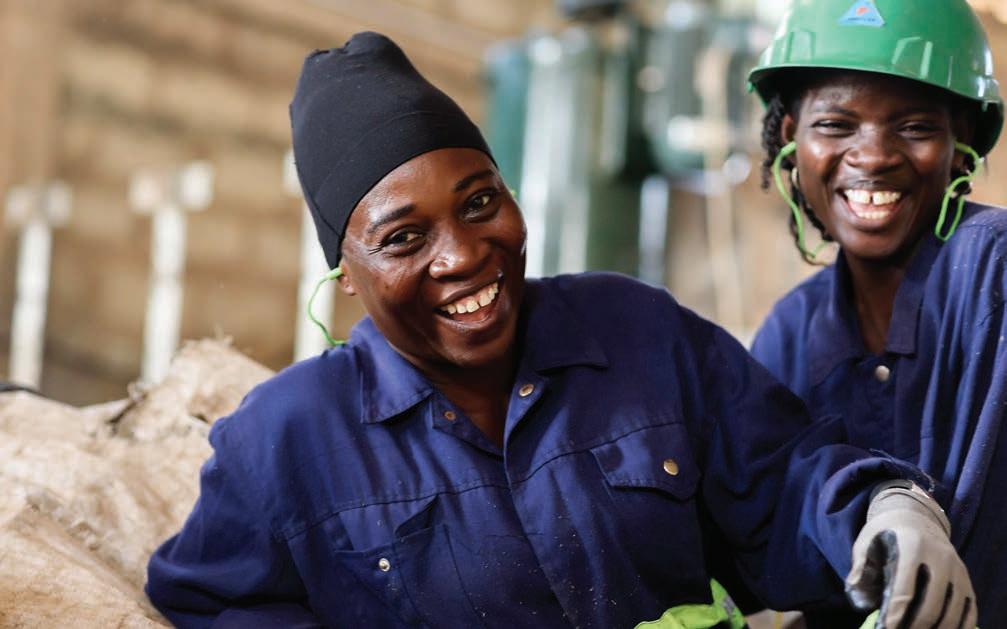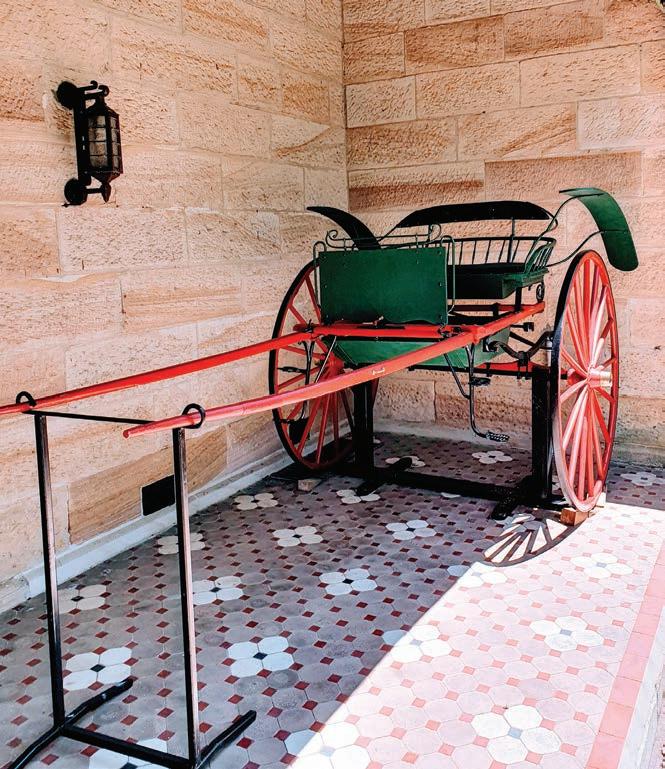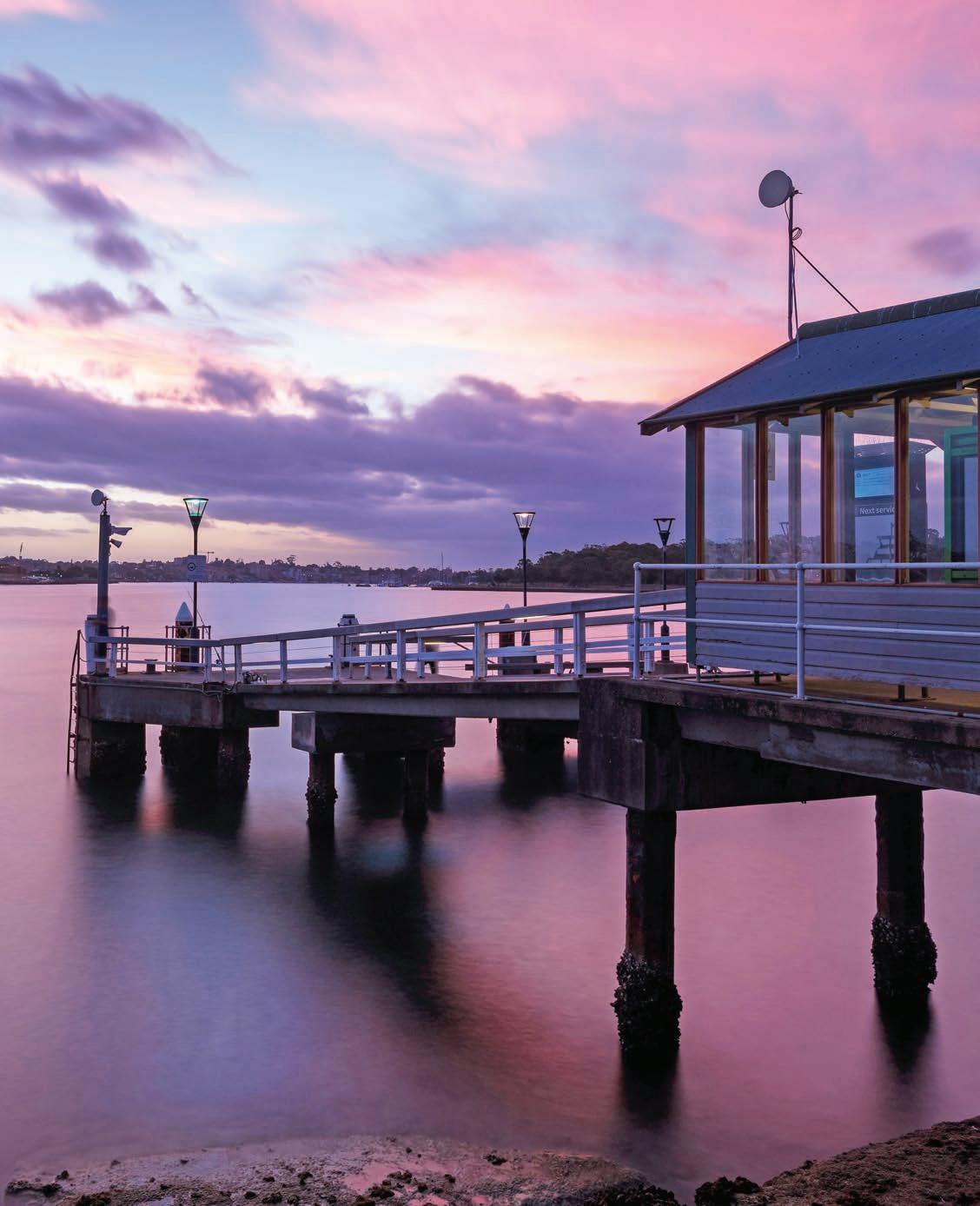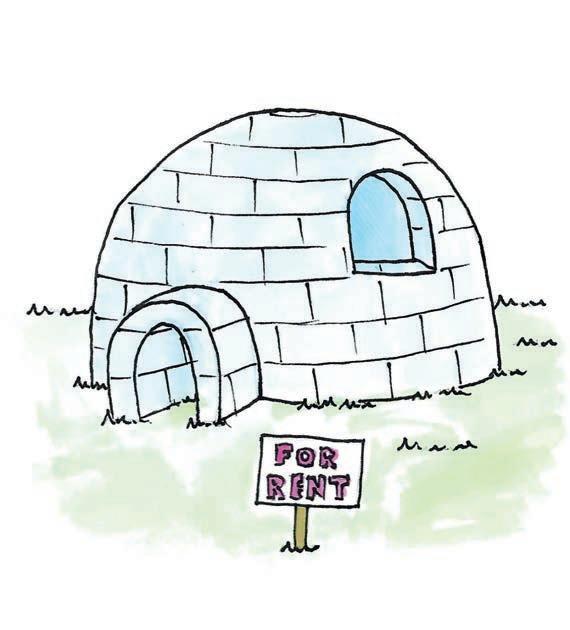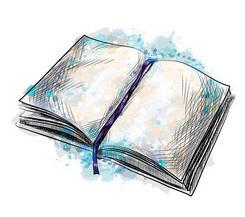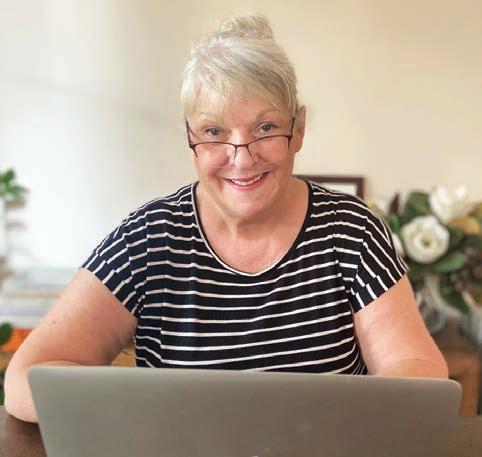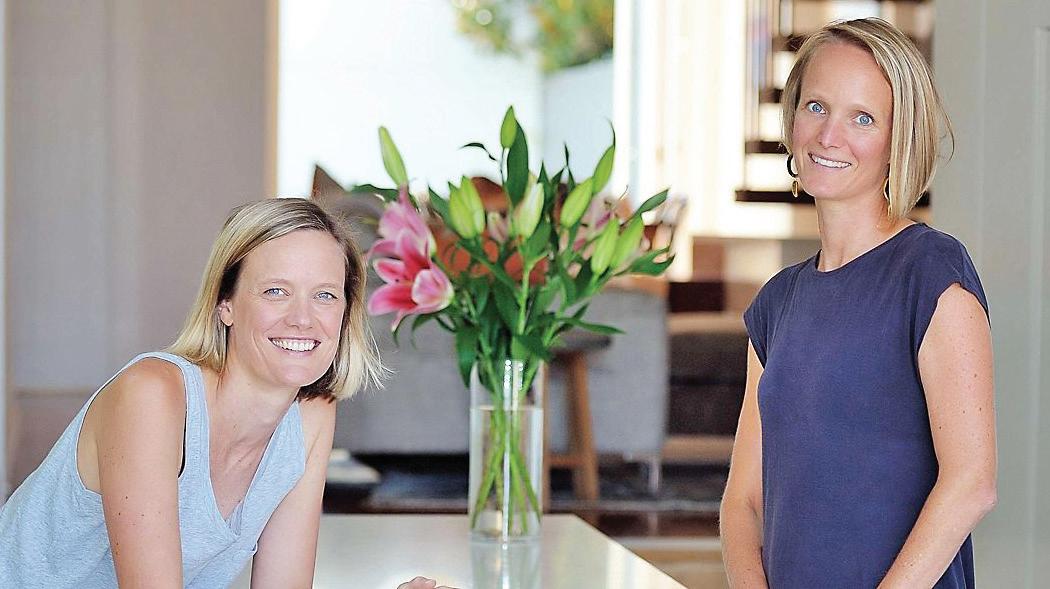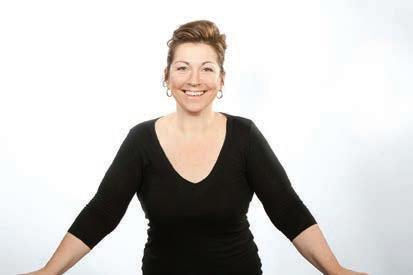
7 minute read
Feature Story - How the world is super-charging recycling
From Lane Cove to Uganda: how the world is super-charging recycling
This month is Clean Up Australia day. It’s another step in the right direction to clean up our world. But there are bigger council, government and corporate efforts taking off that will be gamechangers for the future.
Advertisement
WORDS: NICOLA RICHES
This might not be news to everyone, but it turns out “street bounty” is a thing. Photos of kerbside pick-ups are posted to “street bounty” groups on social media, and within minutes it seems, slow moving cars appear with people dashing to grab their earmarked items. What a genius way of reducing landfill. One man’s trash…
Community attempts at recycling go a long way to minimise the amount of “stuff” we throw in the ground. Our collective attempts are not always perfect – we have all seen pictures of the post-Christmas dumps outside opshops – but equally, there are many amazing, localised community efforts.
Clean Up Australia Day, for example, takes place this month (Sunday March 7) and helps to keep tonnes of plastic, bottles, cans, cigarette butts and other waste out of our forests and waterways and put them where they belong. It is an easy, fun, and effective way to make a difference that we can see right away.
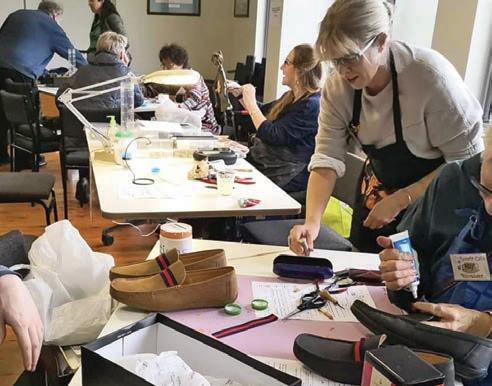
Repair Cafe
Returning, earning and repairing
Repair Café was opened at the Living and Learning Centre on Longueville Road. These are all really wonderful local projects and there is some comfort to be drawn from posting photos to street bounty groups, drinking from a HuskeeCup and using the Repair Café. It all equates to positive action and goes some way to helping the current recycling crisis. But the problem is bigger than
Lane Cove and its surrounding our individual or local endeavours. suburbs are already jam-packed with conscientious recyclers. Over the past Gathering momentum, not dust 18 months, more than two million Green bin? Easy: garden waste containers have been deposited in the (but no food scraps, and certainly no dog Little Street and Lane Cove West Return poo). Yellow bin? Carboard: tick! But cans and Earn facilities, while Lane Cove council has partnered with reusable takeaway HuskeeCup (washed, not washed)? Milk cartons (maybe)? Plastic bottle tops (really unsure)? Red bin? cup brand Huskee to stop us throwing paper Food scraps (seems a shame)? Plastic bags (oh no, cups in the bin. As of this month the program will see think of the oceans)? Shoes with holes in them (where else cafes provide customers with a HuskeeCup, which are do they go)? Minefield. All of us, surely, are guilty of what is made from coffee husks, a waste material produced in called “wishcycling”. the milling of coffee. Once used, it can be returned to the What may come as news is that the Australasian cafes, who will supply the customer a drink in a new clean Recycling Label, containing more information to help us HuskeeCup. dispose of packaging correcting, was only introduced as
Lane Cove is also famous for being the location of recently as October 2020. Before that labels tended to lack North Sydney’s repair café. In 2015, permaculture expert detail and confused us. Wendy Bishop introduced the sustainability wonders of a With the Australasian Recycling Label, each component repair cafe to the Permaculture North Sydney Group. Until of any packaging is given a label with clear instructions. then no-one at the meeting knew anything about repair Take for example a tray of pre-prepared food - the label cafés. However, all were excited by the potential of what explains what to do with the plastic tray, as well as the seeit could do for the environment, for sharing repair skills through plastic covering it and the paper sleeve with the and for community building. Soon after this meeting, the product information on it. It’s a step in the right direction.
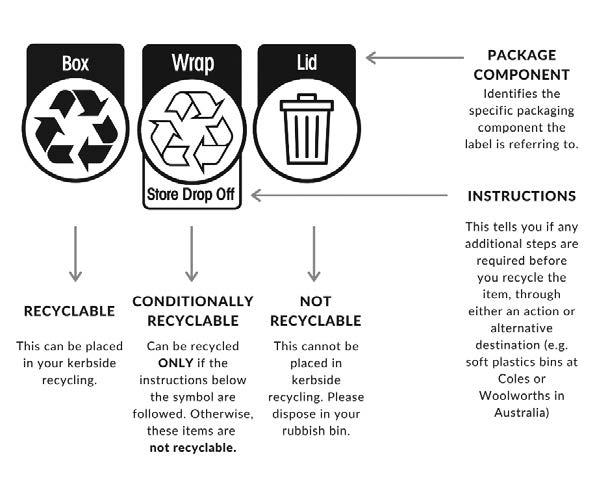
ASASE Foundation
How2Recycle, the same initiative that operates in the US and Canada, goes one step further and is even clearer in its instructions. These detailed labels go as far to explain which items should be rinsed before going into the recycling bin and which items need to be bundled together – for example, the lids of tinned cans need to be slotted into the can before they can be recycled. Both are evidence-based systems that help keep contamination out of the recycling stream and recyclable material out of landfill, and more crucially, the organisation lobbies companies In January, the Remanufacture NSW Fund was launched by NSW government making available $35 million for industry and council projects that are willing to fund the other third to support initiatives that turn recyclable material into reusable products. Although the fund is relatively small, it goes some way to provide a response to last year’s decision by the Council of Australian Governments to ban the exports of waste plastic, paper, tyres and glass, with additional supporting government interventions to build recycling markets and associated demand. to adopt the labelling system. “... for example, Casting the net wider Bringing in the big guns Individual households and local councils have a part to play, but shouldering the real responsibility is the work of state and federal governments the lids of tinned cans need to be slotted into the can before they can be Despite commitments from government, one step into a supermarket and the task seems daunting, almost insurmountable. But this is where the corporates have started to step in, and they hardly get bigger than product and corporates. And to their credit – things are moving a lot quicker than a recycled.” manufacturer Procter & Gamble. In an article published by National garbage truck on a main road in rush hour. Geographic, it was revealed that John
Just over a year ago, the NSW government Layman, head of material science at Procter established a $14.35 million program to establish a & Gamble and founding inventor of PureCycle network of community recycling centres for householders Technologies, has developed a process to remove colour, across New South Wales to dispose of and recycle problem odours, and contaminants from polypropylene plastic wastes. waste (which you will find in everything from the lid of
This followed an injection from the NSW government a pack of TicTacs to a baby’s nappy, a plumbing pipe and of $337 million in 2017 that will be spent by the end of the base of your kettle) and transform it into a “virgin-like” this year. Of that, $27m was allocated for expansion of resin that is the basis for new plastic products. Combined green bins services and organics collection in multi-unit with a set of additives created by another company called dwellings. It also funded pilots for the collection of food Milliken & Company, the properties of the plastic are waste collected in kitchen caddies that could be added to modified so they be used for many, many other purposes green bins. Areas that now benefit from that service include – and ultimately re-used time and time again. PureCycle’s Penrith, Leichardt, Ashfield, Marrickville and Woollahra. first manufacturing plant will open in Ohio this year. $16.5 million was channelled into more innovative projects that could allow for the safe collection and disposal A global push of nappies and incontinence pads, treated timbers, tyres The war on waste is not just a problem limited to the and rubber and e-waste. Results from those pilot projects western world, despite our large consumption of goods are expected this year. and materials.
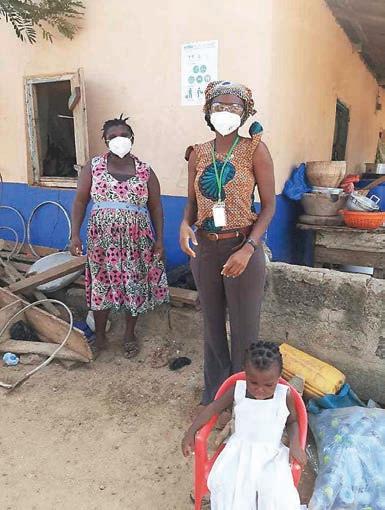
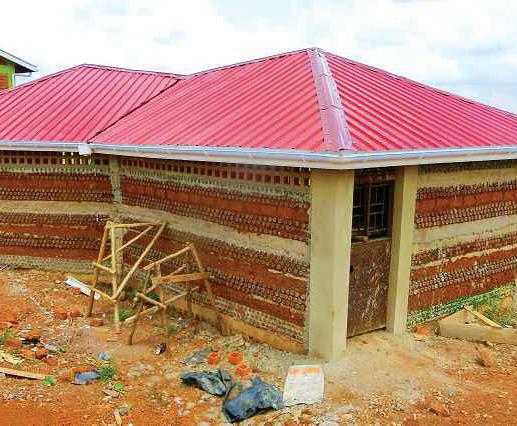
ASASE Foundation ASASE Foundation increased its
Women-led ASASE Foundation processing capacity is an organisation that enables from 35 tons of Ghanaian women entrepreneurs. One of its projects has been the creation of a plastic waste to recycling facility that buys plastic waste 500 tons in 2020 collected by locals (mostly women), then regrinds the waste to sell to manufacturers.
ASASE Foundation’s initiative is rapidly scaling. In 2019 it increased its processing capacity from 35 tons of plastic waste to 500 tons in 2020 and is expected to quadruple that to 2000 tons this year. Further expansion is in the works, with help from European Commission in Ghana.
Meanwhile, Upcycle Africa, based in Central Uganda, has been working with women and unemployed youths to collect and transform plastic waste into eco-friendly building materials. The social enterprise has recovered more than million plastic bottles and built 117 affordable homes.
This year Upcycle Africa will pilot trash-to-tank processors to turn plastic waste unsuitable for building Upcycle Africamaterials into plastic-derived fuel oil, helping close the recycling loop.
Jembrana regency in Bali is a scenic place of beauplace of natural beauty but limited options for waste management have led to illegal dumping. Project STOP Jembrana is building a local waste management system that will If you head out on a Clean Up Australia process 2200 tons of plastic waste every year, preventing Day, take a photo and send it to us. it from being dumped in the local environment. What is We’d love to feature them here in TVO exciting is that this project, if successful, will be rolled out across Indonesia. editor@thevillageobserver.com.au
It’s a combined effort. Every step we all take is a step in the right direction.
